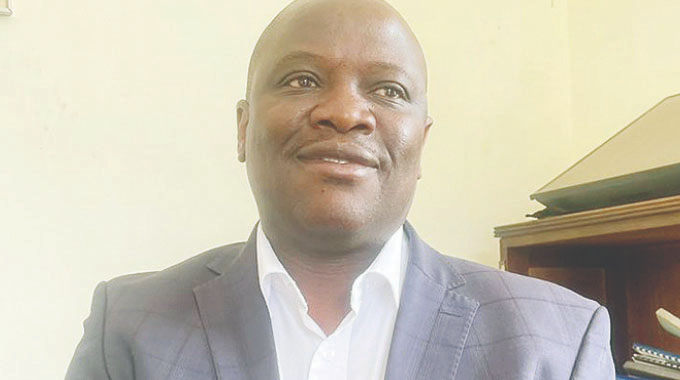Zimbabwe Building Contractors Association holds kick-off meeting on circular economy

Sifelani Tsiko – Agric, Environment & Innovations Editor
Zimbabwe Building Contractors Association (ZBCA) in partnership with the European Union’s Africa RISE (Reform for Investment and Sustainable Economies) held a kick-off meeting recently on circular economy to help the country to build a more resilient and greener economy.
“This meeting sought to help the Zimbabwe Building Contractors Association to meet with all experts attached to this project,” ZBCA CEO Crispen Tsvarai told the Herald on Thursday.
“A workshop will be convened soon to bring together government, private sector players, bilateral partners, civil societies and the academia to explore ways to support Zimbabwe’s roadmap to a circular economy.”
The new project intends to highlight the challenges, trends and opportunities in the country in creating a new circular system with support from the EU and other multilateral agencies.
“The Zimbabwe Building Contractors Association is committed to a knowledge-based lobbying and advocacy program where it engages policy makers on the benefits of a circular economy from an informed point of view, hence this project.
“We are hopeful that our members, both contractors and service providers, will gain knowledge that will make them use their resources effectively and even create new job opportunities in the market,” Tsvarai said.
The Africa Rise programme is a demand – driven regional technical assistance facility that aims to promote business development and improve the investment climate in Eastern Africa, Southern Africa and the Indian Ocean.
It is financed by the European Union and implemented by Landell Mills in partnership with Adam Smith Europe, Imani Development and International Economics Consulting.
The main objective of this activity is to increase knowledge in the construction sector on ‘circular economy’ opportunities and models that could be implemented by the private sector.
“Circular economy is an infrastructural development agenda which is central to the National Development Strategy (NDS)1. The country needs to take advantage of this gesture and invest in circular models that strengthen the country’s way of doing business,” said Mr Peter Makwanya, a climate change expert.
“Circularity gaps need to be managed in order to fill in current and existing structural and procedural gaps. Above all, the green economy concept should be contextualized, visualised with local lenses, harmonised and humanised.”
Zimbabwe has embraced the circular economy in line with the African Union Agenda 2063, the Sustainable Development Goals (SDGs) and the commitments to reduce carbon emissions expressed in the Paris climate change agreement.
The country’s business sector is keen to chart a path towards a green, sustainable, inclusive and circular economy to promote sustainable waste management and reduce the country’s carbon footprint.
Participants are expected to discuss cutting – edge circular solutions to support the attainment of Paris climate goals and the Sustainable Development Goals.
A transition to a green economy is an opportunity to promote social inclusion, poverty eradication and sustained economic and employment growth, while simultaneously maintaining a healthy environment.
In Zimbabwe, there has been an emergence of economic activities centred around repairing, refurbishing and recycling end-of-life products as well as expanding access to renewable energy, helping to put the country firmly on the road to an expanded circular system.
The country, just like many others in Africa, is showing high interest in creating national circular economy road maps.
Reducing waste while boosting recycling and reuse – commonly referred to as the ‘circular economy,’ will be vital to build the country’s resilience to climate change through the promotion of sustainable practices.
Zimbabwe now requires collaboration and a range of enabling systems and structures such as policies, business support, financial incentives, new technologies and infrastructure to promote a circular economy which aims to eliminate waste, advocate for continual use of resources and recycling.
By adopting appropriate technologies, implementing resource efficiency and designing circular economy patterns, the country’s construction sector may not only reduce production of waste but also comply with environmental protection legislation to improve the nation’s waste and environmental management systems.







Comments